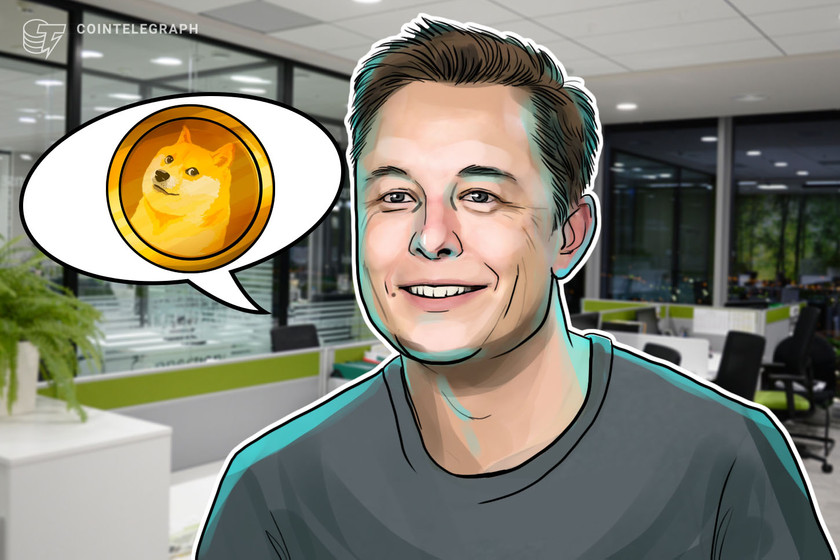To the ‘literal moon’? Elon Musk SpaceX tweet gives Dogecoin a 35% liftoff

Right on cue for April Fool’s Day, Musk promises to “put a literal Dogecoin on the literal moon,” but for hodlers, the resulting gains were anything but a joke.
It may be an April Fool’s Day prank, but when it comes to meme-based cryptocurrency Dogecoin (DOGE), it hardly matters.

Musk: SpaceX taking Dogecoin to “literal moon”
After a fresh tweet from Tesla CEO Elon Musk, DOGE/USD shot up 35% in minutes on April 1, hitting six-week highs.
Musk, newly dubbed the “Technoking” of Tesla, is known for his tongue-in-cheek Dogecoin publicity, and his antics on Twitter and in interviews have already succeeded in boosting the altcoin’s price.
This time was arguably the most overt example of “memeing” a cryptocurrency to the moon, however, as Musk promised that his other company SpaceX would “put a literal Dogecoin on the literal moon.”
SpaceX is going to put a literal Dogecoin on the literal moon
— Elon Musk (@elonmusk) April 1, 2021
Immediately, Dogecoin began rising, reaching a peak of $0.07 before cooling off but still retaining the gains.
Having began 2021 at just $0.004, DOGE’s year-to-date gains as of April 1 stood at over 1,500%.
In a perhaps equally unlikely but genuine move, Latvian national carrier airBaltic announced this week that passengers can now book flights using DOGE along with several other altcoins. Bitcoin (BTC) has been accepted since 2014.
More than empty promises?
Musk, meanwhile, has found himself in hot water over his Twitter plugs, with reports emerging in February that the mogul was under investigation by United States authorities.
He is not the only one to fall foul of the establishment for doing so. As Cointelegraph reported, entrepreneur John McAfee was charged with a raft of offenses last month, among which were his daily showcases of various cryptocurrencies on Twitter.
However, it was advertising Dogecoin in particular that got him into trouble, he claimed.
The concept of clamping down on alleged market manipulation remains a sore point among many lay investors in light of the Reddit–GameStop debacle, which saw trading platforms prevent investors from transacting in a seemingly ad hoc fashion when their trading provoked heavy volatility.




